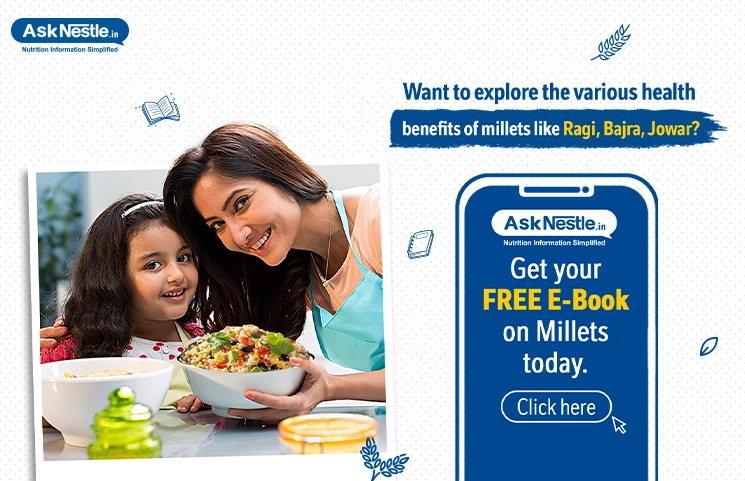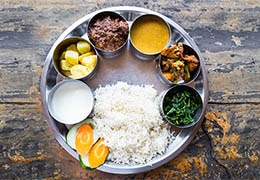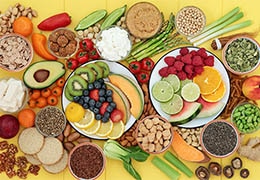As a mother, you must be already aware that healthy meals, containing a variety of macro and micro nutrients, are essential for your child’s proper growth. And for that, you need to consciously make his or her meals wholesome and balanced. Healthy foods for kids can lay the right nutritional foundation for your little one and save them from a lot of health issues later in life. Here are some of the best foods for toddlers.
- Fish: Known as the most popular food which supports brain development, fish is high in protein and omega-3 fatty acids. The oily and cold-water varieties are amazing sources of special fats called eicosapentaenoic acid (EPA) and docosahexaenoic acid (DHA), These brain-boosting components are produced by marine algae, which the fishes feed on.
However, according to nutritionists, infants should be first fed vegetarian items, when they reach 6 months of age. The transition to non-vegetarian foods should be gradual and should happen by his or her first birthday. It is wise to start with eggs and poultry items and then gradually progress to meat, followed by fish, and other seafood. The cherry on the cake is the enormous amount of iodine your child can get from fish. Since this mineral is responsible for thyroid hormone functions, iodine is vital for certain body processes that contribute to normal brain development, bone formation, and growth.
- Eggs: The white of the egg contains protein of the highest biological value. But what does that mean? It simply means that all of the protein consumed is completely absorbed and utilised by the body. Additionally, the yolk is a rich source of choline, along with fat and vitamin A. Choline is known to enhance memory power. Also, eggs might be accepted gradually by infants. And it is essential to ensure that the child does not have an egg allergy, as eggs are among the top ten most common food allergens.
- Nuts: Nuts are packed with essential fats, some B vitamins, as well as vitamin E. While vitamin B helps in the utilisation of glucose by the brain and nerves, vitamin E is an antioxidant that guards the neural membranes. Nuts must be introduced when your child is around 12-15 months of age. However, watch out for any allergic reaction, especially to peanuts. Being a good source of vitamin E, nuts promise enhanced cognitive performance (thinking, learning, memory, scholastic performance, and so on) for your child!
- Millets: These are staples that you can introduce as complementary foods early on. Millets have a low glycaemic index, yet contain minerals like potassium and zinc, and certain B vitamins in abundance. These nutrients create a favourable combination for optimal brain development. When it comes to cereals, just remember to go for whole grains, and you will be set for a healthy start.
- Beans: Beans are loaded with fibres, complex carbs, a host of vitamins and minerals, and of course, protein. They are also known to offer a special substance called ALA, an omega-3 fatty acid, essential for brain growth. Since beans can be challenging for the infant to digest, start with traditional recipes and very tiny amounts. Gradually, try offering different kinds of beans, as part of varied preparations.
- Go green: Green leafy vegetables such as spinach are loaded with iron. Several studies have correlated iron with enhanced focus. And the fibre in it is a bonus.
- Dairy products: Milk or milk products are undoubtedly a treasure-trove of calcium and protein. But, don’t opt for the very high-fat ones. Low-fat/skimmed milk, cottage cheese, and curd are powerhouses of proteins, good fats, and certain B-vitamins.
- The fruit and veggie bowl: Treat fruits and veggies as your holy grail for providing sufficient vitamins, minerals, and fibre. Soups, salads, and shakes can all be good choices. Go seasonal and local with your choices, as much as possible. Fruits are a natural source of fructose sugar, which is released very slowly into the bloodstream. This means, a fruit consumed in the morning may release small amounts of sugar into the blood over the next few hours. Since sugar is an energy source and keeps the brain cells alert, your infant’s morning fruit can keep him attentive for a good few hours.
It can take a bit of trial and error to include healthy foods in your child’s diet. At the same time, it goes without saying that a balanced diet for children must be the ultimate focus, unless your child has an allergy and the doctor or dietician suggests otherwise.
To learn more about Happy Growth and growing up milk visit https://www.nestle.in/brands/nestle-lactogrow
To learn more about nutrition dense meal options to include in your child’s diet visit www.ceregrow.in
To learn more about growth and possibilities for your child visit www.nangrow.in












